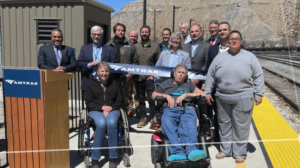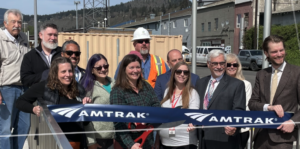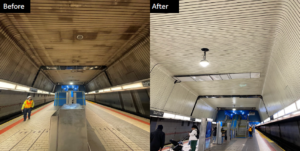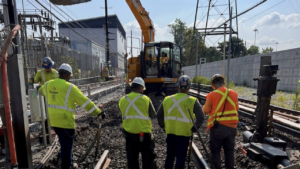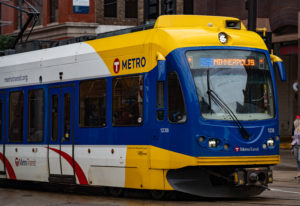Sound Transit identifies Bellevue site as preferred alternative for new light-rail operations base
Written by Jenifer Nunez, assistant editorThe Sound Transit Board of Directors have identified a site in Bellevue's Bel-Red corridor between Bellevue and Redmond, Wash., as the preferred alternative for a new Link light-rail operations and maintenance base. The new facility is needed to store, service and deploy the expanding light-rail train fleet as the system expands from 16 to 50 miles by 2023.
The existing light-rail fleet will triple in size from 62 to 180 vehicles as Sound Transit opens more than 30 new stations and carries more than 280,000 riders a day by 2030. The current operations and maintenance facility in Seattle has capacity to store and maintain 104 light-rail vehicles. As Sound Transit buys additional vehicles in advance of opening voter-approved rail lines to the north, east and south, the existing facility will reach full capacity by 2020.
The preferred alternative is west of 120th Avenue NE, adjacent to existing railroad tracks on land that Sound Transit already owns a portion of. The final decision on the site location and the general size and scope of the facility will be determined after the project’s Final Environmental Impact Statement (FEIS) is complete. Staff will begin work on FEIS this summer and move forward with preliminary engineering and design work on the preferred alternative. The FEIS will be complete in mid 2015 with the final site selected in the fall of 2015.
“Today’s decision keeps us on track to open more than 30 miles of light-rail extensions within the next decade,” said Sound Transit Chair and King County Executive Dow Constantine. “We are also taking action to advance the vision of the Bel-Red corridor, which is poised to be one of our region’s largest transit-oriented communities.”
The new facility needs to be close to an operating light-rail line, roughly rectangular in shape and up to 25 acres in order to store and maintain the additional fleet requirements. The new facility is estimated to cost between $345 million and $415 million.

